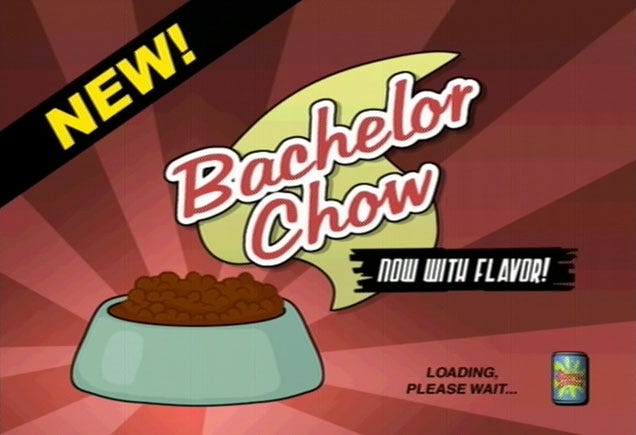So What, Who Cares (vol 2, issue 90) Where does your meat come from? You may never know.
Hello! Inspired by an evening-long Twitter conversation yesterday over whether or not people are capable of remembering to bring their own bags into the grocery store, I want to share this story about the cultural connotations of the NPR tote bag.
I don't have an NPR tote (yet) but I want to know who among you do, and whether you do use it for groceries or not. Hit me up with your answers via Twitter and email.
*
Do you know where your meat comes from? You may not soon. The U.S. House of Representatives approved HR 2393, which will remove the "country of origin" labels on chicken, pork and beef sold within the United States. This bill undoes the COOL law passed in 2002, which:
is a labeling law that requires retailers, such as full-line grocery stores, supermarkets, and club warehouse stores, notify their customers with information regarding the source of certain foods. Food products, (covered commodities) contained in the law include muscle cut and ground meats: beef, veal, pork, lamb, goat, and chicken; wild and farm-raised fish and shellfish; fresh and frozen fruits and vegetables; peanuts, pecans, and macadamia nuts; and ginseng.
The Senate is also leaning toward repeal. Several Big Food companies, including Pepsico Inc, Tyson Foods Inc, the U.S. arm of Nestlé, Coca-Cola Co, Anheuser-Busch and Kraft Foods, have lobbied for repeal -- an interesting move in light of recent consumer trends toward "cleaner," "greener," whole foods (vol 2, issue 79, vol 2, issue 29).
The bill has not yet made it through the Senate.
So what? This bill illustrates an interesting gap between industry interests and consumer interests: One of the sustained trends among U.S. food consumers has been a push for greater transparency in food production, and this bill effectively removes that requirement from some foodstuffs.

U.S. consumers currently eat 70 pounds of chicken annually. But the bill would make it tough for consumers with food-safety concerns to buy chicken. You may recall that in 2013, the U.S. ended a ban on processed-chicken imports from China and ended a requirement that these processed-chicken products come with a country-of-origin label. That move opened the U.S. market to cooked and processed chicken from China; this bill would open up remaining types of chicken for sale.
Who cares? People who would simply like the option of knowing where their food comes from without having to pay an inordinately high dollar-per-pound price for a pound of ground beef that comes with the cow's origin story. My partner and I have the luxury of a local cow share, but note how I used the word luxury. For my family's budget, transparency in our food production chain is a premium consumer good.

Looking beyond the "What about meeeeeee?" angle, other stakeholders in this developing story: Agricultural communities in Canada, the U.S. and Mexico are all angling for the country-of-origin labeling to go away -- the non-U.S. countries because they feel the label provides U.S. meat producers with an unfair home-field advantage, and the U.S. because they are super-nervous about other countries retaliating with tariffs on agricultural exports and tanking overseas agricultural sales.
And the final group of stakeholders: some 283 different consumer, agricultural, environmental, labor, and faith-based groups, all of whom argue that country-of-origin labeling is a consumer protection measure that should not go away.
*

Your pop-culture note of the day: Clear your DVR, make friends with someone who has cable if you're one of those "I don't own a television" types, do what you have to, because IFC is airing Eric Jonrosh's The Spoils Before Dying TONIGHT, and it is going to be good.
For those of you unfamiliar with the literary titan Eric Jonrosh (pictured at right) and his work: Imagine every author whose embossed-cover paperbacks dominated wire book racks in drugstores throughout the 1980s -- Erich Segal, Herman Wouk, Colleen McCullough, Judith Krantz. Imagine the miniseries that got made. Now imagine what happens when a passel of comedic veterans decides to pay satiric homage to the format. Et voila! Eric Jonrosh and his cache of recently-rediscovered miniseries.

IFC aired The Spoils of Babylon last year, and Will Ferrell's Eric Jonrosh was the framing device around every episode. The miniseries was hilarious, but had the unfortunate side effect of permanently spoiling Tobey Maguire for me for life; when I saw him in The Great Gatsby wearing the same expression he had during The Spoils of Babylon, I burst into sidesplitting giggles.
This year's installment stars Maya Rudolph and Michael Kenneth Williams in a noirish whodunit and I cannot wait to see what sprang from the perfervid imaginings of Eric Jonrosh.
And if you're still committed to that no-TV thing but you do have a streaming Netflix account, you can see what all the fuss is about with The Spoils of Babylon. Amazon also has it for sale via instant video, as does the iTunes Music Store.
*
Are there typos? Copyediting is the only editing class I did not earn an A in. I'm trying the David Pogue-suggested method of changing a font to see if that helps, but any other tips appreciated.
Any suggestions for links gratefully received -- hit me up via Twitter and email. And any feedback is welcome. Again --hit me up via Twitter and email.
Really like this newsletter? TELL A FRIEND TO SUBSCRIBE! Then you and your friend will never have any awkward small talk again because you can talk about this newsletter.


